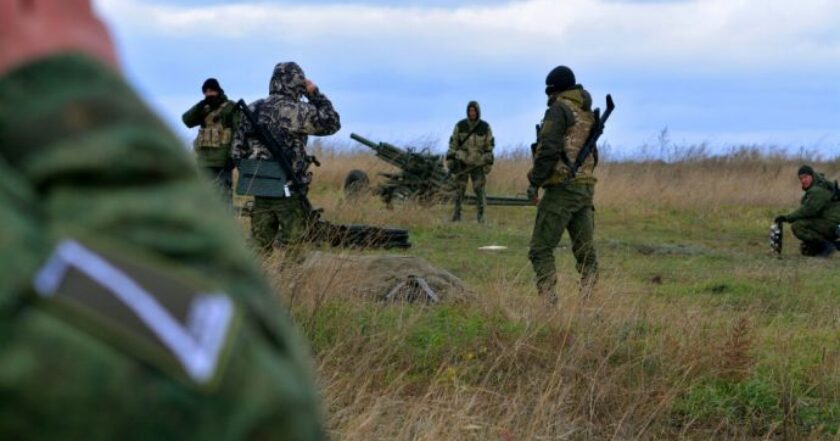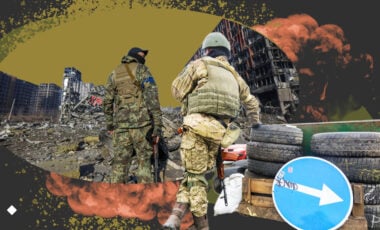Russia's occupation of Vuhledar unlikely to alter offensive operations in western Donetsk region – ISW

It is unlikely that the Russian occupation of Vuhledar will significantly alter the offensive operations in the western Donetsk region, as the city is not a crucial logistical hub.
The Institute for the Study of War (ISW) reports this.
"Russian forces likely seized Vuhledar as of October 1 following a reported Ukrainian withdrawal from the settlement, though it is unclear if Russian forces will make rapid gains beyond Vuhledar in the immediate future," military experts said.
According to ISW analysts, geolocation videos released on September 30 and October 1 showed Russian troops planting Russian flags and operating freely in various parts of Vuhledar. Russian bloggers said on October 1 that Russian forces had captured the settlement.
On October 1, a Ukrainian serviceman reported that part of the Ukrainian group made a planned withdrawal from Vuhledar to avoid encirclement, and Russian bloggers claim that Ukrainian troops began withdrawing from Vuhledar at the end of September 30.
The review also notes that the capture of Vuhledar by Russian forces followed a series of costly and unsuccessful Russian assaults near the town over the past two and a half years.
Experts remind that Russia has made at least two significant offensive attempts to capture Vuhledar:
- in October-November 2022,
- in January-February 2023.
According to experts, both of these assaults led to large personnel and military equipment losses.
Previous Russian defeats around Vuhledar, in particular, exhausted the 155th Marine Brigade (Pacific Fleet, Russian Navy).
Russian sources doubted the Russian forces' ability to advance quickly and make significant operational gains immediately after taking control of Vuhledar.
Russian bloggers have suggested that the front line will not collapse after the capture of Vuhledar, as Ukrainian defensive positions to the northeast and the need for complete clearance of Vuhledar make it a strategic spot for future Russian attacks.
"ISW previously assessed that Russia's seizure of Vuhledar is unlikely to fundamentally alter the course of offensive operations in the western Donetsk region, largely because Vuhledar is not a particularly crucial logistics node and because Russian forces have controlled most of the main roads running into Vuhledar before October 1, meaning that Russian forces already could interdict Ukrainian logistics in this part of the front to some extent," summarized the analysts.
ISW key findings as of October 1:
- Ukrainian officials continue to highlight how Ukraine is reducing Russia's battlefield artillery ammunition advantage, likely in part due to recent Ukrainian strikes on Russian ammunition depots.
- The United Nations Office of the High Commissioner for Human Rights (UN OHCHR) issued its June-August 2024 report detailing Ukrainian civilian casualties, systemic Russian mistreatment of Ukrainian prisoners of war (POWs), and limited Ukrainian mistreatment of Russian POWs. The UN OHCHR report highlighted the difference between official Russian and Ukrainian reactions to the abuse of POWs, and Russian state media largely misrepresented the report by ignoring assessments about Russia's systemic mistreatment of Ukrainian POWs.
- The Russian federal budget for 2025-2027 has carved out funding to support online platforms belonging to a prominent Kremlin propagandist and a former opposition outlet, further highlighting the Kremlin's efforts to adapt its propaganda machine to Russians' growing reliance on social media for information.
- Russian forces recently advanced near Vovchansk, Kreminna, Toretsk, Pokrovsk, and Vuhledar.
- Russian authorities are reportedly planning to increase recruitment within Russian pre-trial detention centers.
It's important to mention that as of October 1, there are still 107 civilians remaining in Vuhledar of the Donetsk region, where there is an ongoing Russian offensive and fighting happening within the city. However, all of the children have been safely evacuated.




















































